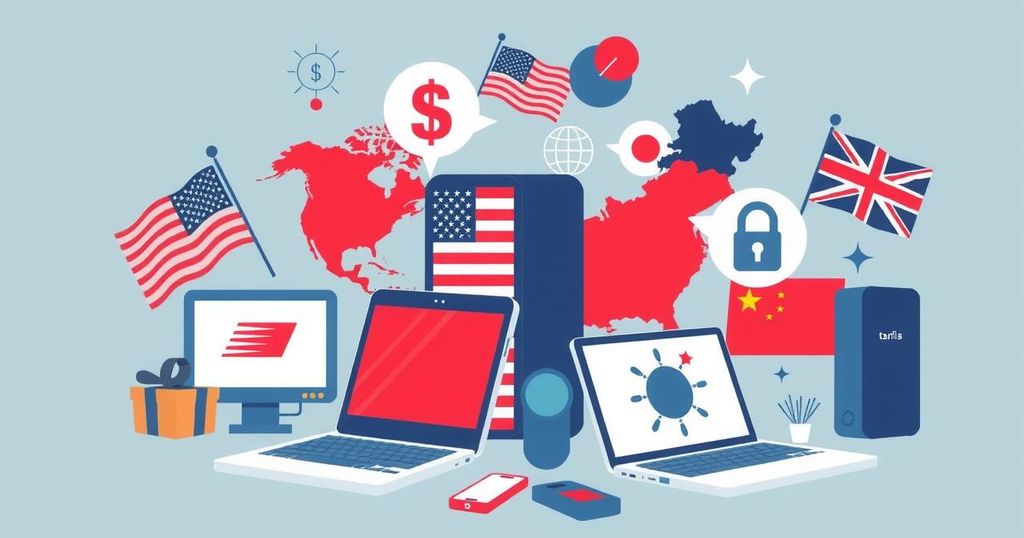Trump Signals Temporary Exemptions for Electronics from Tariffs
Donald Trump cautions that exemptions for electronics from import tariffs will be brief, and he intends to implement new tariffs targeting semiconductors and critical technology products. While recent announcements from the White House provided temporary relief, the evolving trade conflict with China remains complex, with significant implications for the US economy and international relations.
Donald Trump has signaled that the exemption of smartphones and electronic devices from import tariffs will be temporary, asserting that no one will escape his tariffs. He expressed this in a post on his Truth Social platform, stating that current tariffs, specifically the 20% Fentanyl Tariffs, will still apply as these products will merely transition to a different tariff category.
In his announcement, Trump indicated plans to initiate a national security trade investigation focused on the semiconductor industry and the broader electronics supply chain. He emphasized the United States’ commitment to not allowing itself to be exploited by foreign nations, particularly those he perceives as hostile, like China.
The White House recently exempted some electronic products from hefty tariffs, which was expected to boost US stock markets, notably lifting shares in companies such as Apple and Nvidia for a limited period of 90 days. However, Trump’s Commerce Secretary Howard Lutnick indicated that significant technology products would still be subject to additional duties, set to be introduced over the next two months.
Lutnick specified that a targeted tariff will be applied to smartphones, computers, and other electronic items in the near future. He mentioned that while these products are excluded from reciprocal tariffs, they will still fall under semiconductor tariffs aimed at national security within a month or two.
The ongoing trade tensions between the US and China have seen an exponential increase in tariffs, creating a high-stakes environment marked by competitive actions from both sides. Trump’s tariff strategy has created notable volatility in the stock market, with substantial impacts on the Standard & Poor’s 500 index, which has dropped more than 10% since Trump’s inauguration.
Following the announcement of broad import taxes on many countries, Trump declared a brief 90-day suspension for most tariffs, excluding China. This series of tariff changes has resulted in significant economic repercussions for the US, leading to declining consumer confidence and fluctuations in the financial markets.
In response to these developments, US Senator Elizabeth Warren criticized Trump’s tariff revisions, claiming they could negatively affect economic growth and accelerate inflation, describing the current tariff situation as a chaotic and corrupt policy framework. Additionally, the Chinese government responded by stating that the recent exemptions symbolize only a minor concession and continued to call for the complete removal of tariffs.
Amid the escalating trade disputes, China is actively seeking to strengthen relationships with its neighboring nations, as demonstrated by President Xi Jinping’s upcoming visit to Vietnam as part of a southeast Asia tour.
In summary, Donald Trump warns of impending tariffs on electronic products, including smartphones and semiconductors, despite recent temporary exemptions announced by the White House. The evolving trade landscape signifies ongoing tensions between the US and China, underscored by possible economic consequences and political criticisms. The situation reflects broader implications for national security and international trade dynamics as both countries navigate this challenging environment.
Original Source: www.theguardian.com






Post Comment